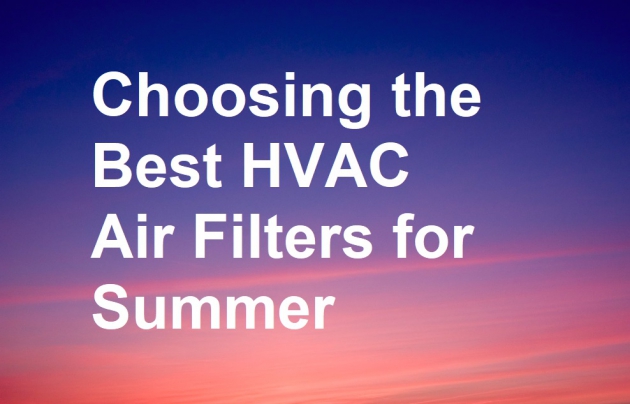During the dry summer months, the air becomes contaminated with specific pollutants which can make this a miserable time for many people. This can even follow people indoors which will degrade the indoor air quality (IAQ). The first people to notice these problems are those with allergies, asthma, and pre-existing respiratory ailments. The rise in airborne contaminants can be fixed with varying degrees of success if you choose the right HVAC air filters.
A Brief Overview
There is a tradeoff to consider, the denser the filter, the more force required to push the air through it. Some HVAC filters are so dense that they wouldn’t work with most domestic grade heating and cooling systems. For this reason, some homeowners install an air purification system or upgrade their HVAC system to use higher high-efficiency particulate air (HEPA) air filters. There are two main types of air filters to consider. They are:
1. Activated Carbon Filters
When the air is hot and stagnant, there tends to be more ozone pollution at ground level. This is a main component of smog, it can make breathing difficult, and long-term exposure can degrade respiratory health. Ozone is a gas, so a standard particulate air filter will not prevent it from circulating in your home. An air filter that can absorb gaseous pollutants is required and activated carbon filters are a great option.
These filters contain compounds that absorb odors and they are available in two formats. The first is a pre-filter that many people install in series with a particulate filter. The second is a particulate filter that has an activated carbon filtration stage. So, when you choose an activated carbon filter, look for a product that contains a high volume of carbon. The HVAC filters with more carbon are more effective when it comes to removing gaseous pollutants.
2. Particulate Air Filters
When the summer air is dry, it tends to contain higher volumes of dirt, dust, smoke, and other airborne contaminants. The inexpensive fiberglass HVAC filter found in most air conditioning systems is not designed to purify the air. Only larger particulates are trapped which can damage sensitive HVAC components deeper in the system. To make the indoor air cleaner, it’s necessary to install an air filter with a minimum energy reporting value (MERV) rating of 6 or more. For summer, a polyester or cotton pleated filter with a MERV rating of 8-10 should be sufficient. To put this into some perspective, a MERV 8 air filter will trap around 85% of particulates down to a size of 3.0 microns. Allergy sufferers and people with respiratory diseases will benefit from a MERV 11-13 rated air filter. These air filters will trap around 90% of particulates down to 3.0 microns and some particles down to 1.0 microns too. This may not be possible in older HVAC systems because the air resistance will be significantly higher and the energy bills may rise. So, if you’re considering using an air filter with a MERV rating above 8, it’s a good idea to consult your local HVAC specialist.
Summer HVAC Air Filter Replacement
When the weather is hotter, the frequency of air filter replacements should increase. Why? Well, the AC system is working much harder to keep the home cool and all the airborne contaminants are circulating through the filter multiple times every day. So, the surface of the filter will collect dust, pollen, pet dander, and other contaminants at an increased rate.
If the air filter is clogged, it will diminish the air flow, which will affect the performance and energy efficiency of the air conditioner. This can even overwork the AC system leading to frequent repairs and an earlier than expected replacement. This is an easy problem to avoid, simply replace the air filters more frequently to keep the equipment working at optimal efficiency.
According to data released by the U.S. Department of Energy, changing a clogged HVAC air filter can reduce energy consumption by 5-15%. The air filters need to be replaced every three months during the cooler months. When the weather is hotter, the air filters need to be changed every month or two depending on the filter condition. A monthly filter change is more likely if you live in a dusty location or you have pets living in your home. Adopting a proactive approach to regular filter changes will improve the IAQ, lower the energy bills, and protect the entire system at the same time.
If you have concerns about your indoor air quality or want to schedule some essential HVAC maintenance, contact your local heating and cooling specialist. An experienced HVAC technician can not only check your system for any underlying issues, but will be able to guide you through the variety of options available to improve your indoor air quality.

